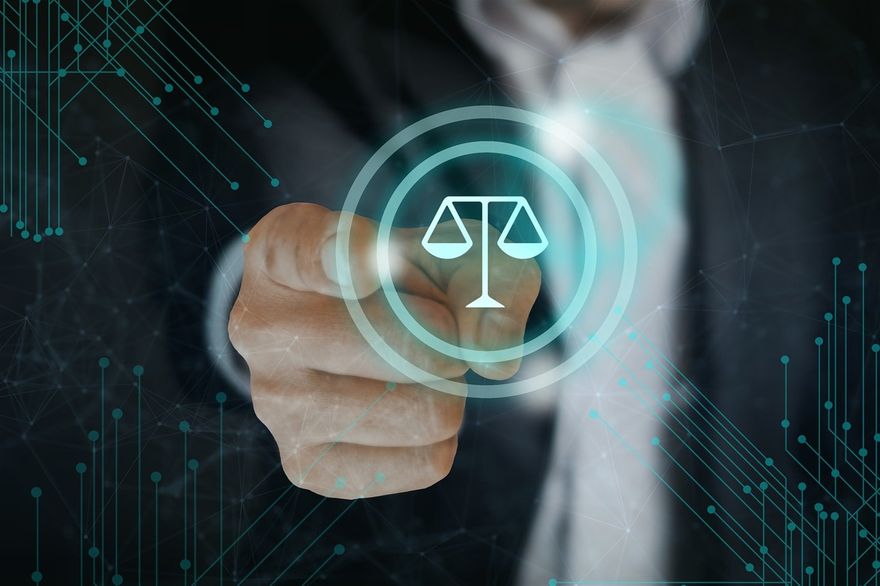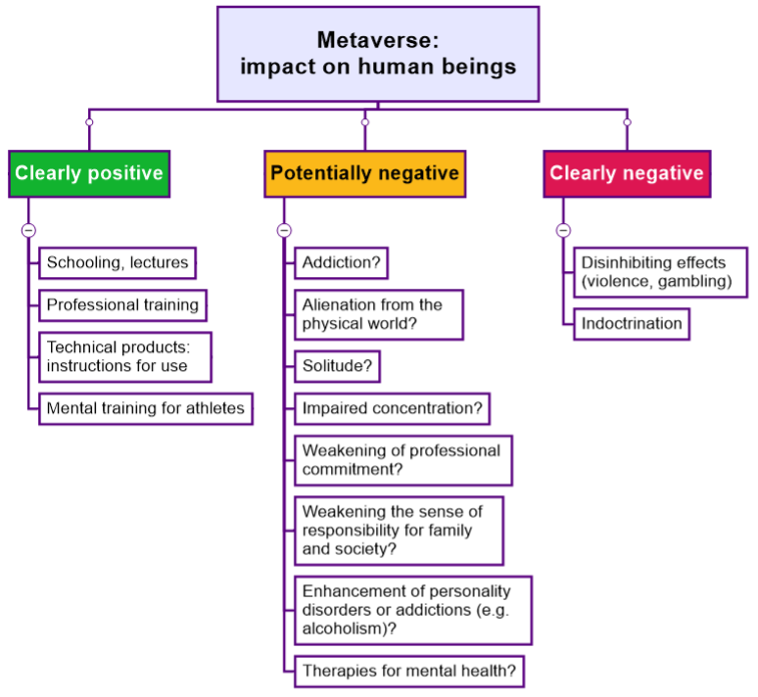Metaverse: Taming the Genie
Martin Bartels
18 February 2022
Protection of mental integrity
Immersion in a virtual reality is a necessary subtraction from the natural interaction with the real reality which we are built for. Nevertheless, immersion into fictional worlds is not necessarily a negative. We have long learned to project texts or pictures into our minds and to use this to enrich our interaction with the real world. Reading a captivating book is an example of this. We can use it to expand the treasure of our experiences.
However, over-saturation can be damaging. This is clear to all parents who know how difficult it can be for their children to get back into family communication mode when they have been immersed in social media for a while and are requested to return to the non-virtual world. Social media certainly has the potential to overwhelm our learned cultural skills and affect our emotional and intellectual capacities.
As noted in my previous article, the metaverse utilises knowledge of users’ habits, preferences and weaknesses gained from tracking their behaviour to get access to their minds and is set to bind significantly more human attention than any technology has before. This potentially deeper interference with the human mind is a serious issue that we citizens must not simply accept as a matter of fate.
In the final analysis, it is citizens who develop and operate the learning machines running the metaverse, and these citizens must comply with the standards and rules that legislators have or will set on behalf of the electorate.
A blanket approach would be inappropriate
Since the metaverse is very likely to develop massive momentum quickly, it’s imperative that we are prepared to deal with it.
The following chart is not intended to be a comprehensive picture of all the outcomes of the metaverse, rather it highlights and categorises some of the differential effects in regards to their impact on society. This will help to facilitate the search for realistic assessments and ways to contain harmful developments. The starting point for this are not the technical triggers, but the potential effects on the human mind.
It’s clear that there will be desirable and non-desirable effects. The cases labelled as “clearly negative” have existed for many years in regular social media, though perhaps with less efficacy than what the metaverse is capable of.
The items under "potentially negative" in the middle have question marks because it cannot be clear whether and to what extent they are risks.
For the sake of illustration, here are two concrete questions situated at the extreme end of the spectrum but nevertheless pertinent:
• Will users with tendencies to violent behaviour, which they can act out freely and with impunity in the metaverse, be thus more or less inclined to do so in the real world?
• What are the effects on mental health for users of the metaverse who adopt a second identity through an avatar? More specifically, what will happen to users who suffer from a split personality?
We know that other immersive technologies with less immersive power can trigger distressing mental lapses mental lapses. So we cannot simply dismiss these questions and look away.
Instead, such questions can only be answered after solid empirical studies have been completed.
How can society deal with the issue sensibly?
The idea of very smart algorithms as triggers for mental changes may be new yet there is very extensive knowledge on the impact of chemical and biological triggers, i.e. psychopharmaceuticals. Institutions like the FDA, the EMA and the MHRA have been developing the expertise for their scientific evaluation of these phenomena.
When looking for the capacity for independent scientific assessment of psychoactive algorithms, we can only revert to the supervisory institutions for the healthcare industry and the launch of any new product for the metaverse should depend on the agencies’ prior approval. Their scientific evaluations protect consumers from harmful effects and reduce liability risks for the manufacturers of medicines. There is no reason for an exemption for the new sector. As with chemical and biological medicines, public health is the highest priority.
The boundaries between chemistry and artificial intelligence are currently in flux. Consequently, these agencies are expanding their expertise. This includes the area of psychoactive substances.
The fear that such institutions might not be impartial is understandable. Breaches of integrity can occur in all institutions that are supposed to oversee commercial activities especially if the decision-makers are poorly paid or society cannot guarantee their or their family members’ personal safety. It should be noted that this is a general issue, applicable to many areas of society, not only the supervision of the metaverse.
Narcos
As the agencies give the green light for metaverse products one by one, a market segment for compliant products will come into being driven by companies eager to defend their reputation.
However, it would not be realistic to expect that the permissible supply of metaverse content will be enough to meet the demand. As in the area of non-legal drugs, unauthorised offers for special areas of the metaverse will enter the market quickly and in large quantities.
It is quite likely that the markets for unregulated services will organise themselves in a similar manner to those for illicit drugs and have a negative impact on the mental health of the population. This is where the jurisdiction of regulators ends, and challenging new tasks fall to the police.
Conclusion
There are established ways to contain and regulate the dangers that will be generated by the metaverse. However, their complete elimination will not be possible.

